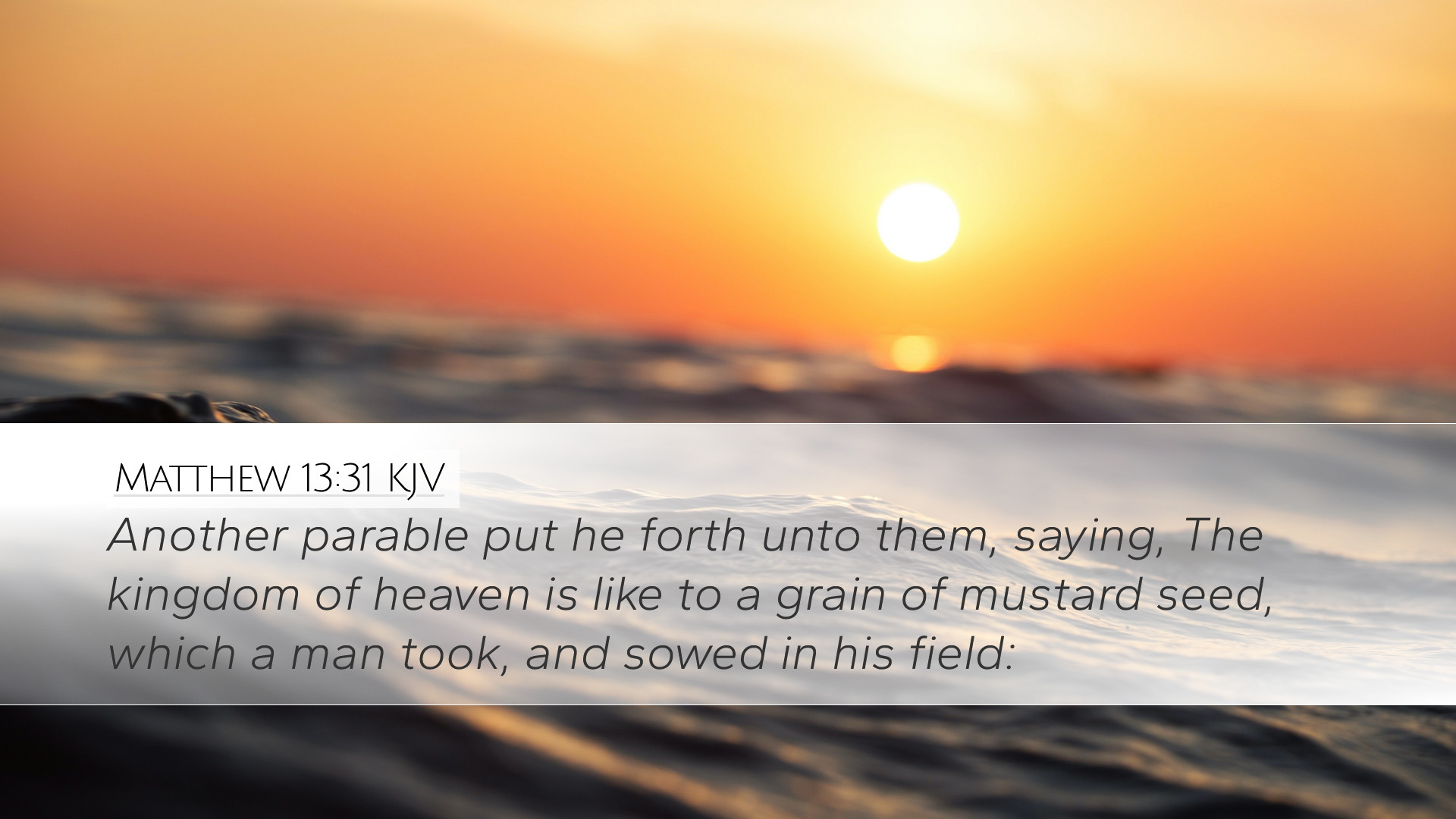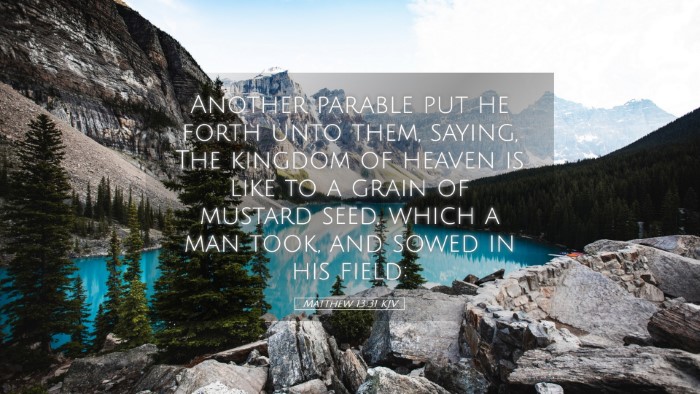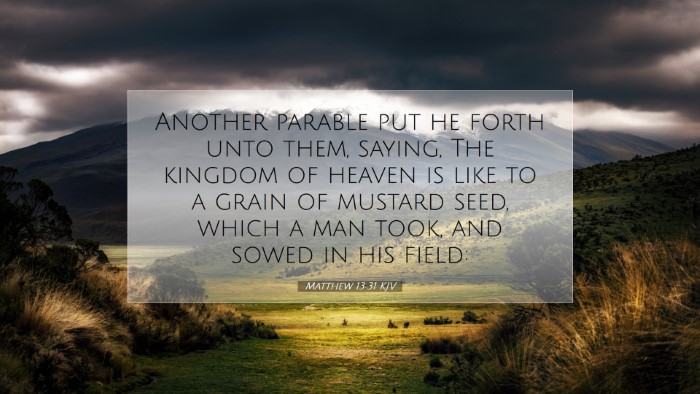Commentary on Matthew 13:31
Verse Text: "Another parable put he forth unto them, saying, The kingdom of heaven is like to a grain of mustard seed, which a man took, and sowed in his field."
Introduction
The parable of the mustard seed, found in Matthew 13:31, offers profound insights into the nature and growth of the Kingdom of Heaven. The use of agricultural metaphors was common in Jesus' teachings, yet this particular parable stands out as it encapsulates themes of small beginnings and vast eventual growth. By drawing on insights from public domain commentaries, we can better understand the theological implications and the practical applications of this verse.
Exegesis of the Text
Matthew Henry offers a detailed examination of the text, emphasizing that the mustard seed, although small, represents the Kingdom of Heaven beginning with the least of all seeds yet becoming one of the largest plants (Matthew 13:32). This reflects the paradox of the Kingdom: its humble beginnings contrast sharply with its ultimate glory and vast influence.
Adam Clarke captures the essence of this parable by noting that the mustard seed symbolizes the initial phase of Christ’s ministry and the early church, which began with a mere handful of followers yet grew to encompass millions worldwide. Clarke also comments on the essence of faith, suggesting that even the smallest faith can yield remarkable results, emphasizing the transformative power inherent in God's Kingdom.
Theological Insights
- Small Beginnings: The mustard seed in this parable serves to illustrate that often in God's Kingdom, great things arise from seemingly insignificant beginnings. This is a frequent biblical theme, seen throughout the narratives of scripture where God chooses the weak and lowly to accomplish His purposes (1 Corinthians 1:27).
- Growth of the Kingdom: Albert Barnes reflects on the mustard plant's growth, indicating that while the seed is small, it transforms into a large tree. This mirrors the growth of the Kingdom, where Jesus started with a small group of disciples but intended to create a global movement.
- The Nature of Faith: The mustard seed also symbolizes faith, as noted by various theologians. Just as the seed holds within it the potential for a vast tree, so too does even a small amount of faith possess the power to effect significant spiritual realities (Matthew 17:20).
Practical Applications
The implications of Matthew 13:31 extend beyond theological discussions; they resonate deeply in practical ministry contexts.
- Encouragement in Ministry: For pastors and church leaders, this parable is a source of encouragement. The small beginnings of a ministry, when viewed through the lens of faith, can lead to exponential growth. Believers are called to trust that God can multiply their efforts, no matter how minimal they may seem.
- Growth in Personal Faith: For individual Christians, the emphasis on the mustard seed serves as a reminder to foster their own faith. Small acts of obedience and trust in God can lead to larger manifestations of His work in their lives.
- Kingdom Perspective: This verse invites believers to adopt a ‘kingdom perspective,’ recognizing that extraordinary outcomes can arise from humble beginnings. It shifts the focus from immediate results to a broader, eternal view of growth and impact.
Historical Context
Understanding the agricultural context of ancient Palestine lends meaningful insight to the parable. Mustard plants were widely known and familiar to the listeners of Jesus' time. Although they were seen as common and even somewhat undesirable due to their tenacity in spreading in others’ fields, Jesus employs this imagery to illustrate the robust nature of His message and mission. The Kingdom of Heaven, much like the mustard seed, resists confinement, spreading its influence far beyond expected boundaries.
Conclusion
Matthew 13:31 serves as a powerful reminder of the nature of God's Kingdom: it begins modestly, yet through divine power, it expands beyond all human comprehension. Pastors, students, and theologians alike are invited to reflect on their own roles within this Kingdom narrative. By embracing the mustard seed principle, there is great potential for growth in both individual faith and collective kingdom work. As Jesus illustrated, it is not the starting size that matters, but the infinite possibilities contained within the small seed of the Goodman of Heaven.


